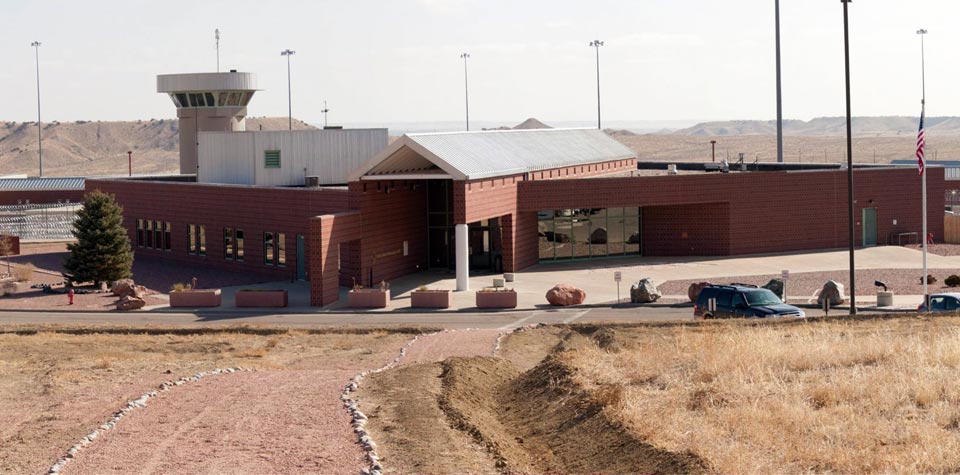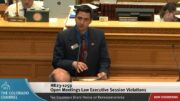By Jeffrey A. Roberts
CFOIC Executive Director
A judge late Thursday rejected a Denver news organization’s argument for publicly disclosing photos showing the tourniquet and plastic bed sheets allegedly used to kill an inmate at the federal Supermax prison in Florence last year.
A lawsuit filed in June by FOX31 investigative reporter Rob Low and the station’s owner, Nexstar Media Group, contended the photos are part of the autopsy report on LaMarcus Hillard and should have been released by Fremont County Coroner Randy Keller in response to a Colorado Open Records Act (CORA) request.
But Fremont County District Court Judge Lynette Wenner ruled that Keller had a legal basis under CORA and the Colorado Criminal Justice Records Act (CCJRA) for withholding the photos because disclosure could “impede or compromise” the ongoing investigation into Hillard’s death.

While Low received the written autopsy report, which is explicitly a public record under CORA, the judge deemed the photos of the weapons “criminal justice records” and the coroner’s office a ”criminal justice agency” under the CCJRA. That law allows criminal justice agencies to withhold many records after weighing factors that include the agency’s interest in pursuing an ongoing investigation, privacy interests and the public interest to be served in allowing inspection.
“The Court … finds that Coroner Keller did not abuse his discretion in denying disclosure of the investigatory files, and specifically photographs, based on his determination that disclosure would be contrary to the public interest,” Wenner wrote.
Low’s attorney, Rachael Johnson of the Reporters Committee for Freedom of the Press, argued in court filings and during a hearing Thursday that the autopsy photos — like the autopsy report itself — can only be withheld upon a judicial finding that their release would cause “substantial injury to the public interest.” Citing a 1974 Colorado Supreme Court ruling and a 1987 Colorado Court of Appeals ruling, both of which address the public disclosure of autopsy reports, she wrote “there is a strong public interest in disclosure of the Autopsy Photos, which will provide a more comprehensive understanding of the circumstances surrounding the death of Mr. Hillard while he was incarcerated in Supermax, the nation’s most secure prison.”
During the hearing, Johnson noted that the autopsy report describes the alleged murder weapons. “Because this description is already put out into the public, there can be no danger or no substantial injury to the public interest,” she said.
But “there’s a difference between describing in the autopsy report the ligatures themselves, which clearly from the autopsy report were physically there, and describing what the photographs depict,” Fremont County Attorney Brenda Jackson contended. “There is nothing in the autopsy report that describes the content of the photographs that were taken,” she said.
According to the Dec. 7, 2020, autopsy report, Hillard died “as a result of ligature strangulation.” The report says the ligature was ‘fashioned out of twisted bedsheet” and that Hillard was found “bound at the hands and feet with plastic sheeting over his head while being strangled by an inmate in an adjacent room. The ligature was reportedly fed through a food slot.”
Hillard, 40, was serving a 25-year sentence at Supermax, also known as ADX Florence, for possession of cocaine with intent to distribute. He was found unresponsive the morning of Sept. 19, 2020, and later pronounced dead.
FBI Special Agent Amber Cronan testified Thursday that the investigation hasn’t concluded. “We would not want those photos released,” she said, contending that their public disclosure could influence statements made by witnesses, “and I want the most pure statement I can get from them as to what they know or what they’ve seen.”
Johnson noted that Hillard died 10 months ago and the investigation into his death “is not in its early stages.”
Follow the Colorado Freedom of Information Coalition on Twitter @CoFOIC. Like CFOIC’s Facebook page. Do you appreciate the information and resources provided by CFOIC? Please consider making a tax-deductible donation.




